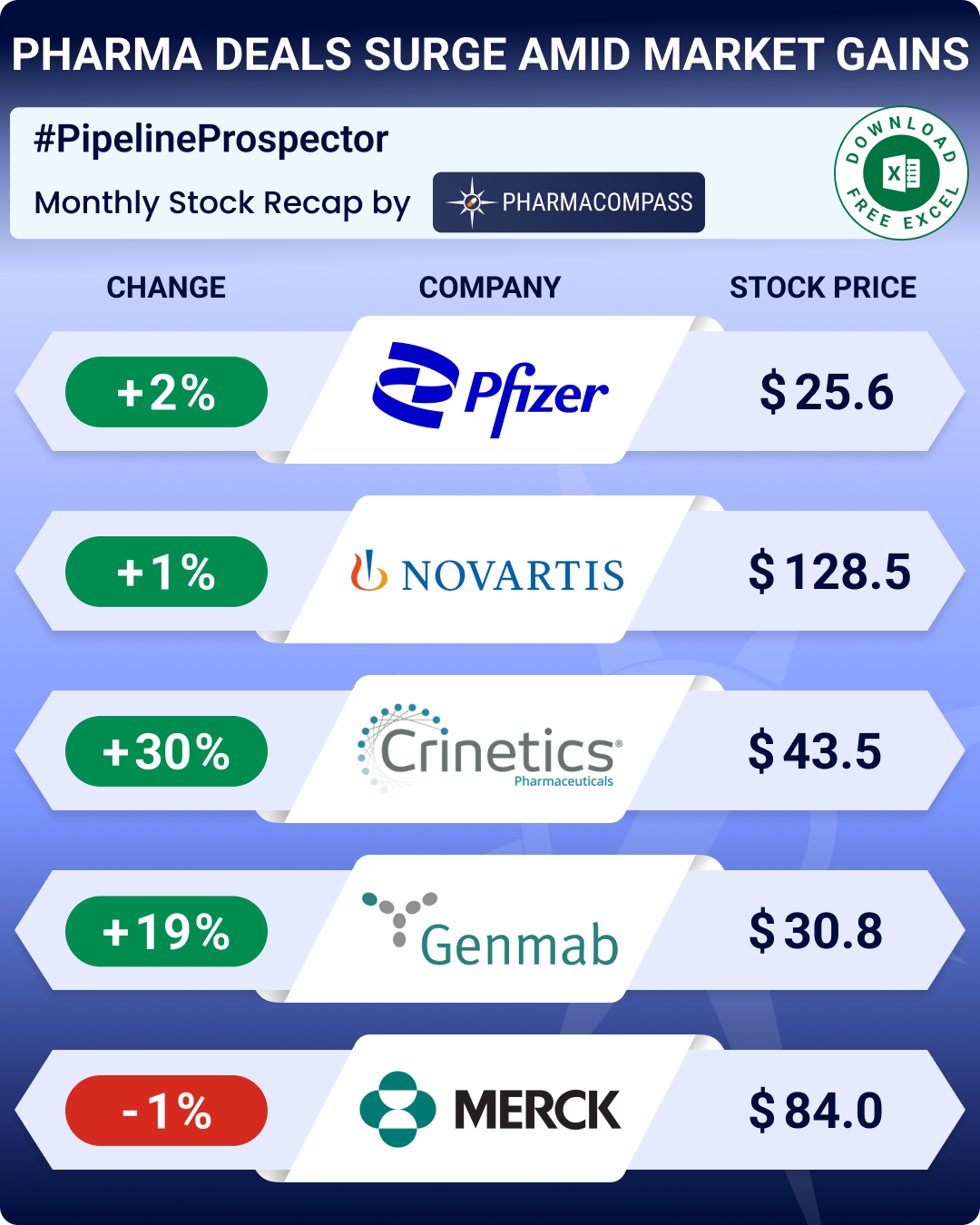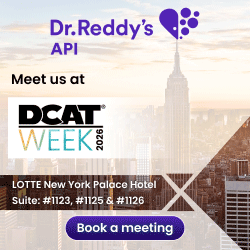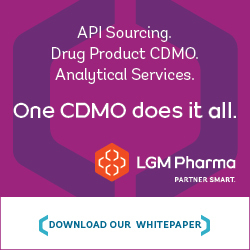
By PharmaCompass
2025-10-02
Impressions: 6995
September saw a major clampdown on imports of “branded or patented drugs” into the US, the world’s largest market for pharmaceuticals. Under the Trump administration’s policy, a 100 percent tariff on branded drugs imported by companies, which are not building plants in the US, took effect on October 1. This policy has led to confusion and raised many questions. While Singapore has sought clarifications, European drugmakers are wondering whether the trade deal signed by US President Donald Trump and European Commission President Ursula von der Leyen in July (with a flat tariff of 15 percent on EU pharmaceutical products) still applies or not.
On their part, drugmakers continue to pledge investments into the US, with Eli Lilly and GSK announcing fresh investments in September.
The UK, on the other hand, is facing withdrawals of planned investments. Drugmakers such as Sanofi, AstraZeneca, and Merck have either paused or suspended planned investments, due to the government's decision in June to nearly double the “clawback rate”, requiring companies to return 31.3 percent of sales on newer branded medicines to the National Health Service, up from 15.5 percent previously.
The debate over vaccines continued in the US. However, the turbulence in the country’s regulatory and policy environment didn’t impact the pharma indices. The Nasdaq Biotechnology Index (NBI) rose 3.45 percent from 4,717.10 to 4,879.90 over the month. The SPDR S&P Biotech ETF (XBI) gained 9.76 percent from 91.29 to 100.20. And the S&P Biotechnology Select Industry Index (SPSIBI) climbed 11.53 percent from 6,998.36 to 7,805.59.
Access the Pipeline Prospector Dashboard for September 2025 Newsmakers (Free Excel)
Genmab buys Merus for US$ 8 billion; Pfizer enters obesity race with acquisition of Metsera
As September drew to a close, Genmab announced the acquisition of Netherlands-based Merus in deal worth approximately US$ 8 billion. The deal gives Genmab full rights to petosemtamab, an experimental two-in-one antibody drug for head and neck cancer. Overall, the buyout will strengthen Genmab’s pipeline of wholly owned late-stage cancer assets.
After discontinuing the development of two experimental weight loss drugs, Pfizer finally joined the obesity race with the acquisition of Metsera and its next-generation obesity portfolio in a deal valued at up to US$ 7.3 billion.
Roche agreed to buy San Francisco-based 89bio for up to US$ 3.5 billion. At the centre of the deal is the company’s lead drug pegozafermin, a late-stage candidate for metabolic dysfunction-associated steatohepatitis (MASH), a progressive liver disease tied to obesity.
Novartis was the busiest dealmaker in September. The Swiss group struck several high-value deals across cardio, neurology and immunology. It has signed a licensing and options deal worth up to US$ 5.2 billion with China-based Argo Biopharmaceuticals for its experimental RNAi drug candidates targeting cardiovascular disease. The pact also gives Novartis options on two earlier-stage drugs, including one for mixed dyslipidemia (a condition characterized by high triglycerides and low levels of HDL-C, or good cholesterol), and another RNA-based therapy expected to enter trials next year.
Novartis also struck an exclusive worldwide collaboration with Arrowhead Pharmaceuticals valued at up to US$ 2 billion. The deal focuses on Arrowhead’s experimental therapy ARO-SNCA, which targets Parkinson’s and related neurological conditions.
Further, Novartis signed a deal worth up to US$ 5.7 billion with Monte Rosa Therapeutics to develop new drugs for immune diseases. Separately, Novartis is buying Tourmaline Bio for US$ 1.4 billion.
Access the Pipeline Prospector Dashboard for September 2025 Newsmakers (Free Excel)
FDA approves Lilly’s advanced breast cancer drug, J&J’s Inlexzo for bladder cancer, injectable version of Keytruda
The month saw several key drug approvals by the US Food and Drug Administration (FDA). The agency approved Johnson & Johnson’s new bladder cancer treatment Inlexzo (gemcitabine) for patients who don’t respond to standard Bacillus Calmette-Guerin therapy (an immunotherapy for early stage bladder cancer) and cannot or choose not to undergo bladder removal surgery.
The agency also approved Eli Lilly’s Inluriyo (imlunestrant) for advanced or metastatic breast cancer in adult patients who have received prior therapy.
Patients with edema that is caused by heart, liver or kidney disease now have a new option — Enbumyst (bumetanide), the first FDA approved nasal spray for edema.
FDA also approved Keytruda Qlex (pembrolizumab and berahyaluronidase alfa-pmph), a new under-the-skin version of Merck’s cancer drug Keytruda (pembrolizumab). This option can now be used in most adults and teens with solid tumors, covering the same indications as the intravenous version.
Crinetics’ Palsonify (paltusotine), the first once-daily oral treatment for adults with acromegaly, also received FDA approval. This rare hormonal disorder is caused by benign pituitary tumors that trigger excess growth hormone.
Meanwhile, Novartis received FDA approval for Rhapsido (remibrutinib), the first oral therapy for adults with chronic spontaneous urticaria (a skin condition) whose symptoms persist despite standard treatments.
Access the Pipeline Prospector Dashboard for September 2025 Newsmakers (Free Excel)
Vertex strikes over US$ 2 bn deal with Enlaza; Merck’s cholesterol drug, United’s pulmonary fibrosis med score trial wins
Vertex Pharmaceuticals has struck a deal worth over US$ 2 billion with California-based biotech startup Enlaza to develop new autoimmune disease drugs and improve patient “conditioning” methods for gene therapies, like those used in sickle cell disease. The partnership aims for innovative, first-in-class medicines.
Samsung Biologics signed a 1.8 trillion won (US$ 1.3 billion) manufacturing agreement with an undisclosed US-based pharmaceutical company. The contract, running through 2029, marks the company’s second-largest deal since it was founded in 2011.
In clinical trials, Merck’s investigational oral drug enlicitide decanoate showed strong results in a phase 3 trial for adults with high cholesterol. The pill significantly lowered “bad” LDL cholesterol and other harmful lipid markers, even in patients already on statins or those who can’t tolerate them.
Eli Lilly’s Jaypirca (pirtobrutinib) scored a win in a phase 3 trial for patients with chronic lymphocytic leukemia (CLL) or small lymphocytic lymphoma (SLL) who didn’t respond well to previous treatments. The drug significantly lowered the risk of disease progression or death compared to standard therapy. Lilly plans regulatory filings with the FDA later this year.
United Therapeutics’ inhaled drug Tyvaso (treprostinil) showed positive results in a trial for people with idiopathic pulmonary fibrosis (IPF), a serious lung disease. The drug improved lung function and helped slow progression of the disease.
Access the Pipeline Prospector Dashboard for September 2025 Newsmakers (Free Excel)
Our view
September was yet another turbulent month. Uncertainties over tariffs, the efficacy of vaccines and policies around regulation of the sector in the US have made the business environment for drugmakers difficult, to say the least. Post the pandemic, the industry has learnt to live with volatility and uncertainties. But this resilience can come with some casualties. Let’s hope it’s not innovation and risk-taking.
Access the Pipeline Prospector Dashboard for September 2025 Newsmakers (Free Excel)
Pharma & Biotech Newsmakers in September 2025
| Company | Country | Currency | Market Cap (Bn) | Change In Market Cap (M) | Stock Price | Change In Price |
|---|
The PharmaCompass Newsletter – Sign Up, Stay Ahead
Feedback, help us to improve. Click here
Image Credit : PHARMA DEALS SURGE AMID MARKET GAINS by PharmaCompass license under CC BY 2.0
“ The article is based on the information available in public and which the author believes to be true. The author is not disseminating any information, which the author believes or knows, is confidential or in conflict with the privacy of any person. The views expressed or information supplied through this article is mere opinion and observation of the author. The author does not intend to defame, insult or, cause loss or damage to anyone, in any manner, through this article.”







